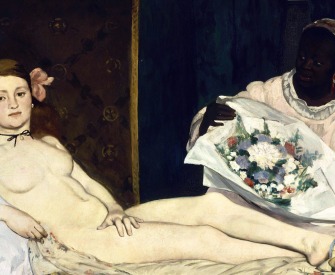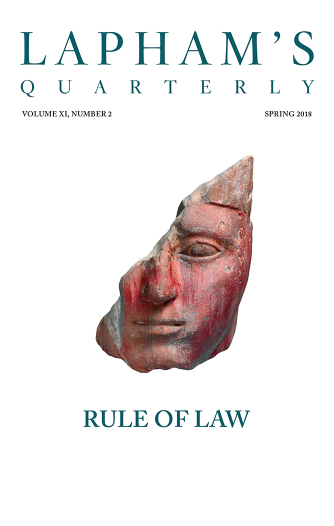It was necessary for the world that arts should be invented and improved, books written and transmitted to posterity, nations conquered and civilized; now, since the proper and genuine motives to these and the like great actions would only influence virtuous minds, there would be but small improvements in the world, were there not some common principle of action working equally with all men—and such a principle is ambition, or a desire of fame, by which great endowments are not suffered to lie idle and useless to the public, and many vicious men overreached, as it were, and engaged, contrary to their natural inclinations in a glorious and laudable course of action. For we may further observe that men of the greatest abilities are most fired with ambition and that, on the contrary, mean and narrow minds are the least actuated by it—whether it be that a man’s sense of his own incapacities makes him despair of coming at fame, or that he has not enough range of thought to look out for any good which does not more immediately relate to his interest or convenience, or that Providence, in the very frame of his soul, would not subject him to such a passion as would be useless to the world and a torment to himself.
Were not this desire of fame very strong, the difficulty of obtaining it—and the danger of losing it when obtained—would be sufficient to deter a man from so vain a pursuit.
How few are there who are furnished with abilities sufficient to recommend their actions to the admiration of the world and to distinguish themselves from the rest of mankind! Providence for the most part sets us upon a level and observes a kind of proportion in its dispensations toward us. If it renders us perfect in one accomplishment, it generally leaves us defective in another, and seems careful rather of preserving every person from being mean and deficient in his qualifications than of making any single one eminent or extraordinary.
And among those who are the most richly endowed by nature and accomplished by their own industry, how few are there whose virtues are not obscured by the ignorance, prejudice, or envy, of their beholders! Some men cannot discern between a noble and a mean action. Others are apt to attribute them to some false end or intention, and others purposely misrepresent or put a wrong interpretation on them.
But the more to enforce this consideration, we may observe that those are generally most unsuccessful in their pursuit after fame who are most desirous of obtaining it. It is Sallust’s remark upon Cato, that the less he coveted glory, the more he acquired it.
Men take an ill-natured pleasure in crossing our inclinations and disappointing us in what our hearts are most set upon. When therefore they have discovered the passionate desire of fame in the ambitious man (as no temper of mind is more apt to show itself), they become sparing and reserved in their commendations, they envy him the satisfaction of an applause, and look on their praises rather as a kindness done to his person than as a tribute paid to his merit. Others, who are free from this natural perverseness of temper, grow wary in their praises of one who sets too great a value on them, lest they should raise him too high in his own imagination, and by consequence remove him to a greater distance from themselves.
But further, this desire of fame naturally betrays the ambitious man into such indecencies as are a lessening to his reputation. He is still afraid lest any of his actions should be thrown away in private, lest his desserts should be concealed from the notice of the world or receive any disadvantage from the reports which others make of them. This often sets him on empty boasts and ostentations of himself, and betrays him into vain, fantastic recitals of his own performances: his discourse generally leans one way, and whatever is the subject of it tends obliquely either to the detracting from others or the extolling of himself. Vanity is the natural weakness of an ambitious man, which exposes him to the secret scorn and derision of those he converses with and ruins the character he is so industrious to advance by it. For though his actions are never so glorious, they lose their luster when they are drawn at large and set to show by his own hand, and as the world is more apt to find fault than to commend, the boast will probably be censured when the great action that occasioned it is forgotten.
Thus is fame a thing difficult to be obtained by all, but particularly by those who thirst after it, since most men have so much either of ill nature or of wariness as not to gratify and sooth the vanity of the ambitious man—and since this very thirst after fame naturally betrays him into such indecencies as are a lessening to his reputation and is itself looked upon as a weakness in the greatest characters.
From an article in The Spectator. In 1704 Addison became commissioner of appeals in excise—a sinecure previously held by John Locke—and published a commemorative poem of the Duke of Marlborough’s victory over the French at Blenheim. In 1711 he co-founded the influential Spectator, printing around 3,000 copies per day.
Back to Issue



